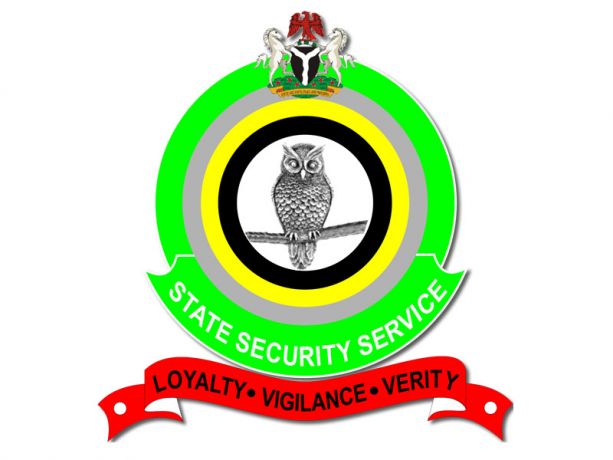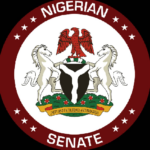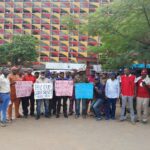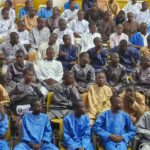All hell broke loose in Nigerian politics last week when the Department of State Services (DSS) made what is effectively an accusation of coup plotting against some unnamed “key players” that they are planning to derail the transition to the newly elected government by installing instead an interim government to take over from President Buhari on the 29th of next month.
An important question that has emerged from the debate and outrage that followed the DSS announcement is this: was the DSS right to have taken what is clearly incomplete information about the plot to the public domain rather than go straight to enforce the law by arresting and prosecuting those behind the plot?
Many well-meaning commentators have said the DSS should have chosen the path of law enforcement by arresting and charging those involved in the plot to court. I beg to differ. In my view, the DSS did the right thing by going to the press rather than making arrests and going to the courts, if indeed such a plot exists. But let’s look first at what the DSS actually said.
In a rather cheeky statement by its spokesman, Peter Afunanya, the DSS said essentially one thing: that a plot does in fact exist, that meetings have been held by some “misguided political actors” and “entrenched interests” to plan an interim government, and that strategies including inciting “violent mass protests” and securing “frivolous court injunctions to forestall the inauguration” have been considered to achieve it. That is effectively an accusation of coup plotting.
And precisely because the accusation came from the DSS, an issue that had been floating freely on social media since before the election went straight to the front pages of all major newspapers across the country last week. Governors’ fora, the leading opposition parties, presidential candidates in the election, constitutional lawyers, the media and ordinary citizens have all joined the fray to issue press statements and make their positions known on the matter.
So far, both partisan and polite opinions alike have cleaved into two. On one side are those who condemn the purported plotters of the interim government for daring to plot against Nigerian democracy for their own selfish interests. On the other hand, the DSS itself is the object of condemnation and accusation, for disclosing the information without naming the plotters and without making arrests. In particular, the motivation of the DSS for disclosing the purported plot has come under intense scrutiny.
Opposition parties have slammed the DSS for attempting to clamp down on them in order to stifle free speech against the election or its outcomes. Other well-meaning commentators have accused the leadership of the DSS of merely trying to warm its way into the hearts of the incoming government in order to “earn” their place, so to speak, in the next administration.
There is a grain of truth in both of these positions. The DSS has a long history of dabbling into partisan politics, often very crudely, and of being enmeshed in corruption scandals involving top politicians. This is particularly true of the DSS that we have come to know in the past 20 years or so.
The DSS has been known to storm the National Assembly, chasing politicians that have stood in opposition to the government of the day. With a history such as this, it stands to reason to question the motivation of the DSS and its leadership for going public rather than to the courts on the purported existence of a plot to derail our transition process.
However, the counter-arguments for the DSS are equally valid. And for me personally, the DSS did the right thing by making recourse to the court of public opinion rather than the courts on this specific issue. Let us assume, without conceding, as the lawyers say, that a plot to install an interim government does in fact exist, that meetings have been held by some politicians or others to discuss various options for achieving it, then, in my view, the DSS in fact took the best decision by going public with it rather than to arrest those behind it.
First, evidence for a political plot that has not yet been hatched is easier to present to the court of public opinion than to prove in a court of law, in which case the DSS disclosure functions like whistle-blowing by alerting the public to pay attention, thereby weakening the position of the plotters, and helping to nip the plot in the bud, if indeed it exists in the first place.
Going public is, in fact, also a legitimate course of action for the DSS to take in such a situation. The point is that the objective of scuttling the plan is far stronger than enforcing the law in this instance. And it isn’t true that a security agency must pursue all objectives only by means of law enforcement, after all, no one knows better how to use public opinion to achieve certain objectives than the American CIA.
Second, public perception is often stronger than legal evidence. There is absolutely no evidence of malpractice in the US 2020 presidential election, as all cases filed in court against the election were thrown out for lack of evidence. Yet, to date, millions of Americans believe that the election was flawed. In other words, if we assume again without conceding that such a plot does in fact exist, then arresting those behind it could cause far more backlash for the DSS and unnecessary political turmoil for the country than the action of going public that the DSS took, no matter the evidence.
All those arrested need to do is accuse the DSS or the incoming government of witch-hunting or persecution, as many do when arrested for corruption cases. Indeed, in this country, some people have been arrested for plotting a coup, but rather than consider the evidence against them, their arrest and trial were discredited as a “phantom coup”. Particularly in our context, the legal approach does not always work in politics, and should not necessarily be the only means available, even for security agencies like the DSS, in a situation such as this, assuming, of course, the plot in fact exists in the first place. Moreover, it’s not as if arresting certain people in Nigeria is that easy, even for the DSS or the police.
In an entirely different but equally significant matter very recently, the DSS actually tried to arrest a ranking public office holder, but could not do it. And that’s just one example.
Furthermore, the political context matters. Many Nigerians have long believed that certain people close to Buhari do not want the outcome the election eventually produced and have been trying to prevent it from happening right from the beginning. Others believe there is a “cabal” that exploits their proximity to the president for their own selfish reasons. In such a context, true or not, going public becomes like a course of least resistance by the DSS, but also the best course of action in the circumstances.
Ultimately, the real issue here is not the correctness or otherwise of the action taken by the DSS. The real issue points to the characteristic lack of central coordination in Buhari’s government. Just a day before the DSS bombshell, the Secretary to the Government of the Federation (SGF) and Chairman of the Presidential Transition Council, Boss Mustapha, assured the world that the transition is on course. How can the DSS come out to make a contrary announcement the following day without President Buhari knowing about it first? And why is there no sanction on the DSS leadership if the president had no prior knowledge of its announcement?

 Join Daily Trust WhatsApp Community For Quick Access To News and Happenings Around You.
Join Daily Trust WhatsApp Community For Quick Access To News and Happenings Around You.


